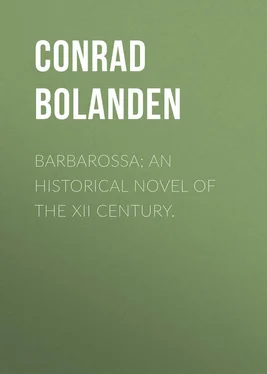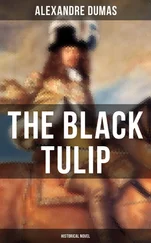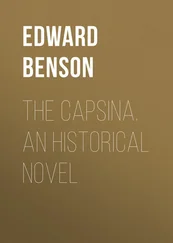Conrad Bolanden - Barbarossa; An Historical Novel of the XII Century.
Здесь есть возможность читать онлайн «Conrad Bolanden - Barbarossa; An Historical Novel of the XII Century.» — ознакомительный отрывок электронной книги совершенно бесплатно, а после прочтения отрывка купить полную версию. В некоторых случаях можно слушать аудио, скачать через торрент в формате fb2 и присутствует краткое содержание. Жанр: foreign_antique, foreign_prose, Историческая проза, на английском языке. Описание произведения, (предисловие) а так же отзывы посетителей доступны на портале библиотеки ЛибКат.
- Название:Barbarossa; An Historical Novel of the XII Century.
- Автор:
- Жанр:
- Год:неизвестен
- ISBN:нет данных
- Рейтинг книги:5 / 5. Голосов: 1
-
Избранное:Добавить в избранное
- Отзывы:
-
Ваша оценка:
- 100
- 1
- 2
- 3
- 4
- 5
Barbarossa; An Historical Novel of the XII Century.: краткое содержание, описание и аннотация
Предлагаем к чтению аннотацию, описание, краткое содержание или предисловие (зависит от того, что написал сам автор книги «Barbarossa; An Historical Novel of the XII Century.»). Если вы не нашли необходимую информацию о книге — напишите в комментариях, мы постараемся отыскать её.
Barbarossa; An Historical Novel of the XII Century. — читать онлайн ознакомительный отрывок
Ниже представлен текст книги, разбитый по страницам. Система сохранения места последней прочитанной страницы, позволяет с удобством читать онлайн бесплатно книгу «Barbarossa; An Historical Novel of the XII Century.», без необходимости каждый раз заново искать на чём Вы остановились. Поставьте закладку, и сможете в любой момент перейти на страницу, на которой закончили чтение.
Интервал:
Закладка:
"I beg you, my lord," said Pietro hurriedly, "take off your helmet, and turn your shield, or their reflection will betray our presence," and, as his advice was followed, he at once resumed, -
"Now let us make every arrangement in order that the tyrant may not escape. Remain here with your men, in observation, whilst I ride over to Cinola to get reinforcements."
"Aye! and meanwhile, Barbarossa will get away. Oh! fool that I am! why am I here, without my own brave troopers? One bold stroke, and the yoke of my beloved country would be broken!"
"Fear nothing," said Cocco, "those iron-clad soldiers would need wings, to escape now. Mark yonder little valley with its sloping meadows and its narrow stream! The Germans are making toward it, for the road passes close by, and good pastures are too rare now in Lombardy for them to neglect so favorable a chance for resting their horses. So, while his Imperial Majesty is taking his ease, our troops will come up, and it will be an easy task to seize this red-headed tyrant by the beard."
Griffi whistled and clapped his hands, and, at the sound, an active little horse ran toward him.
"Cocco," said the knight to his companion, "my good friend, Cocco, lose no time-but, stay, let two of my troopers go with you; an accident might happen, and remember that you hold in your hands the liberty of Italy."
"Bah! my lord Pietro," replied the other, "I will give you leave to flog me, if my horse, Molo, does not easily distance your stiff troopers!" and as he spoke he sprang upon the back of the nimble animal, and soon left far behind him the soldiers whom the knight had detailed as his escort.
Pietro concealed himself behind a bush, whence he could observe the enemy's movements. The Germans continued to advance. In front, rode the knights in complete armor, – he could even distinguish Barbarossa's banner with its richly embroidered lion, and it seemed as though he could recognize the lofty stature of the Emperor himself.
As Cocco had foreseen, they entered the valley, in which, midway, stood the ruins of an ancient cloister.
The emotion of the Milanese increased as he watched the little troop. He forbade his men to rise from the ground, lest their bright helmets might reveal their presence, and, gazing earnestly towards the city, his whole person betrayed the feverish restlessness of one who felt as much anxiety for the deliverance of his country as hatred for the tyrant whose iron arm weighed so heavily upon Italy.
CHAPTER III.
THE CHANCELLOR RINALDO
The Imperial escort had halted in the valley, the horses were unsaddled and grazing in the meadows, while the soldiers in groups were resting beneath the shade of the pines and oak-trees.
Three of the knights had chosen the most picturesque spot among the ruins, and from the slight elevation, on which they stood, could discern all the surrounding country, and even the lofty summits of the Alps, which bounded the horizon toward the North. It was to this direction that was turned the anxious gaze of one of the knights, who, with his hands resting on his sword-hilt, stood before the gateway of the ruined church. But little above the middle height, he was powerfully built, and his long mantle, thrown behind him, showed that his arms, legs, and feet were cased in mail, and that above his ordinary armor he wore a coat of silver links which came down to the knee. On his head was a steel helmet of proof, which shone brilliantly in the sun, and a heavy two-handled sword with a double hilt, and in a plain leathern scabbard, completed his accoutrement.
At first sight, the form of the young soldier scarcely seemed to warrant his ponderous armor. Strikingly handsome, with hands of remarkable delicacy, with a bright fair complexion, and a mouth around which played a smile of frankness and amiability, it needed a second glance to discover that, under this engaging exterior, was concealed a violent energy, an iron will, and a pride without limit. His full blue eyes inspired confidence, but at times his glance could threaten as fiercely as it now seemed kind and gentle. His brow was high and broad, his nose aquiline, and his beard and hair of a bright red.
Such was the appearance of the Emperor Frederic I., the mightiest sovereign of his age, and one of the most illustrious men of whom history has made mention.
His two companions were striking contrasts. The first was tall, with a grave dark face, and long black hair; and his stern features indicated the soldier whose life had been passed in action. Thoroughly devoted to his sovereign, the Count Palatine Otho de Wittelsbach was the faithful and constant attendant of the Emperor.
The other was a small fair man, with a gentle and smiling face. Unlike Otho, he was not in armor, but wore a long embroidered gown, green trunk-hose, and a black hat. Yet in spite of his amiable expression, there was an air of dissimulation about him, and his eyes were as false and deceitful as his language was elegant and persuasive. He was the celebrated Chancellor Rinaldo, Count of Dussel, and Archbishop of Cologne, in whom the Emperor reposed the most implicit confidence, a confidence fully justified by the political talents of the wily statesman. It was said that his ideas were even more progressive than those of the prince himself, and that he pushed him forward in his policy, despite the many serious obstacles in the path of his Imperial sovereign.
The Emperor was still gazing toward the north, when a young man of handsome bearing and with an almost childlike expression of amiability on his features, approached, holding a cup of wine. Frederic's whole expression changed to one of almost paternal fondness, as he glanced at the young soldier.
"Always mindful of your godfather, my good Erwin," said he, draining the goblet. "By my faith, if the repast be but proportionate to your attentions, we shall feast most regally to-day."
"The table awaits you, Sire," said the young man, pointing to a shield which was placed on a stone near by. "Pray, pardon the frugality of the entertainment." Barbarossa turned towards the shield emblazoned in blue and white lozenges , on which was placed the Emperor's meal, consisting of bread and a little smoked meat.
"Sit down, gentlemen," said he. "Ah! not so bad; I see that Bavaria has sent us her food as far as Lombardy."
"Aye!" replied Count Otho, "and her contingent will be here soon to aid us with their good lances. According to the last despatches, the advanced guard should arrive to-morrow."
"It is full time to chastise these disloyal Guelphs," said Frederic. "The rebellion has become general; Milan openly defies us; Genoa grows each day more factious, and even Venice, despite our Chancellor's eloquence, has assumed an air of insolence."
"Right and reason," replied Rinaldo, "have but little chance of success against fraud and dissimulation."
"Well answered," cried Otho; "I am glad to hear such sentiments proclaimed. We must draw the sword, and prove to these insurgents that they owe obedience and respect to their sovereign."
"You are right, my lord Count," said Rinaldo, glancing at the Emperor. "After vainly trying mildness and conciliation, it would be rank cowardice not to use the sword."
At the close of their frugal repast, the Emperor directed his chancellor to read to him, until it was time to mount again; and Rinaldo, taking a book which was brought to him by the young knight Erwin, opened it at a marked page, while Otho, too thorough a soldier to care much for literature, withdrew on one side.
"We have learned the ideas of His Holiness as to the origin of all power," said the Chancellor to the Emperor, who was seated on the pedestal of a fallen column. "The following letter from Pope Gregory VII. will fully explain what these ideas mean, and to what they tend.
Читать дальшеИнтервал:
Закладка:
Похожие книги на «Barbarossa; An Historical Novel of the XII Century.»
Представляем Вашему вниманию похожие книги на «Barbarossa; An Historical Novel of the XII Century.» списком для выбора. Мы отобрали схожую по названию и смыслу литературу в надежде предоставить читателям больше вариантов отыскать новые, интересные, ещё непрочитанные произведения.
Обсуждение, отзывы о книге «Barbarossa; An Historical Novel of the XII Century.» и просто собственные мнения читателей. Оставьте ваши комментарии, напишите, что Вы думаете о произведении, его смысле или главных героях. Укажите что конкретно понравилось, а что нет, и почему Вы так считаете.












